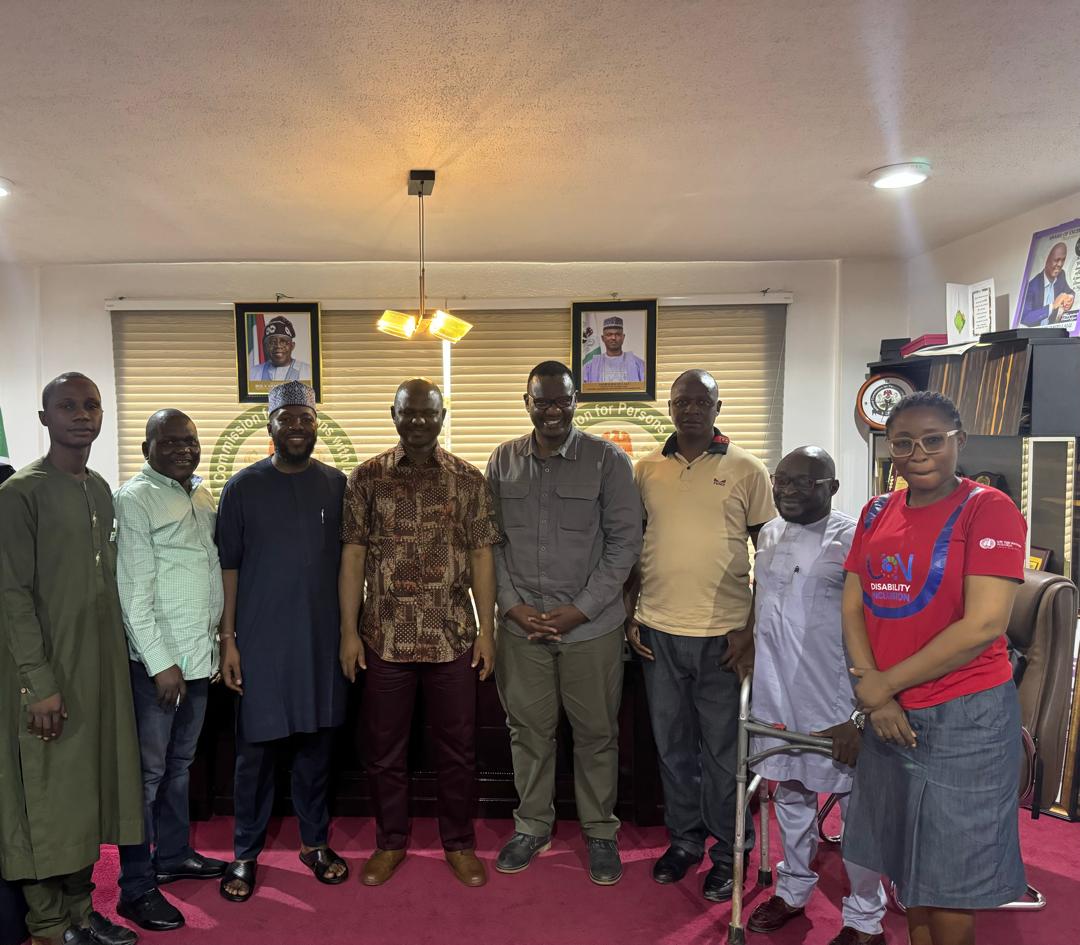Local production of assistive devices will improve lives of PWDs – Commission
The Executive Secretary of the National Commission for Persons with Disabilities (NCPWD), James Lalu, says local production of assistive devices for PWDs will make life easy for them. Lalu spoke recently in Abuja when he hosted a meeting with Peter Mbuguah, Managing Director of Motivation Charitable Trust (MCT), from Kenya. According to a statement on […]

whatsapp image 2024 07 21 at 12.55.23
The Executive Secretary of the National Commission for Persons with Disabilities (NCPWD), James Lalu, says local production of assistive devices for PWDs will make life easy for them.
Lalu spoke recently in Abuja when he hosted a meeting with Peter Mbuguah, Managing Director of Motivation Charitable Trust (MCT), from Kenya.
According to a statement on Saturday by the Head of New Media, NCPWD, Saleh Faruq Gagarawa, the discussion focused on the potential for local production of assistive technology devices in Nigeria, including wheelchairs and crutches.
Lalu expressed his commitment to improving accessibility for PWDs through the local manufacturing of assistive devices.
Bridging Digital Divide: Empowering PWDs Through AI and Wearable Technology
NCPWD, NAFOWA partner to advocate for disability rights
He emphasized the importance of establishing a factory in Nigeria to provide a wide range of high-quality, size-appropriate options tailored to the needs of the local population.
“Local production will not only ensure the availability of diverse choices but also significantly reduce costs and improve accessibility for our community,” said the Executive Secretary.
He highlighted the NCPWD’s readiness to sign a Memorandum of Understanding (MoU) with MCT to facilitate this initiative.
Also speaking, Mbuguah shared insights into MCT’s extensive global initiatives, underscoring the importance of maintaining high standards in local production.
He discussed the crucial elements of technology transfer, quality assurance, and a cohesive business model that would drive the success of the project.
“Our goal is to ensure that local production meets international standards without compromising quality,” Mbuguah said.
Both parties agreed on the necessity of further discussions to finalize the MoU, including details on sample collection, pricing, and a planned visit to Nairobi, capital of Kenya, for an in-depth planning and training sessions.
